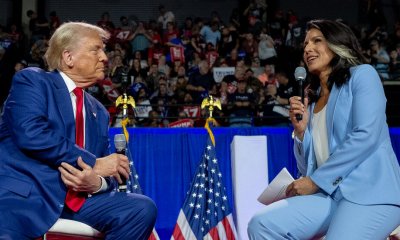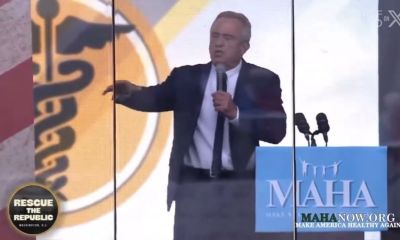Featured
RFK Jr. Exposes Joe Biden’s Racist Past in Viral Black History Month Post
Kennedy had previously called Biden a “friend.” That so-called friendship is now in question because Kennedy came out swinging — and hard.

In a striking Black History Month post, Robert F. Kennedy Jr. highlighted a series of actions and positions attributed to Joe Biden that have sparked intense discussions about the President’s past record on race-related issues. The viral tweet brought to the forefront Biden’s role in the 1994 crime bill, controversial comments on voting choices, his stance on drug offense penalties, and past positions on school busing and segregation.
Joe Biden is campaigning in South Carolina right now. Tomorrow is the first day of Black History Month. Let’s reminisce on everything he’s done for Black Americans:
– Authored the 1994 crime bill which led to the mass incarceration of black people
– Said if you don’t vote for him, “then you ain’t black”
– Extended penalties for people under 21 charged with selling marijuana
– Endorsed segregationist senators
– Opposed busing because he didn’t want his kids to grow up in a “racial jungle”
The tweet has ignited a conversation on social media, drawing attention to historical political stances and their impact on present-day perceptions. Let’s delve deeper into an analysis of how Biden’s actions have impacted Black Americans, as outlined by Kennedy’s 𝕏 post.
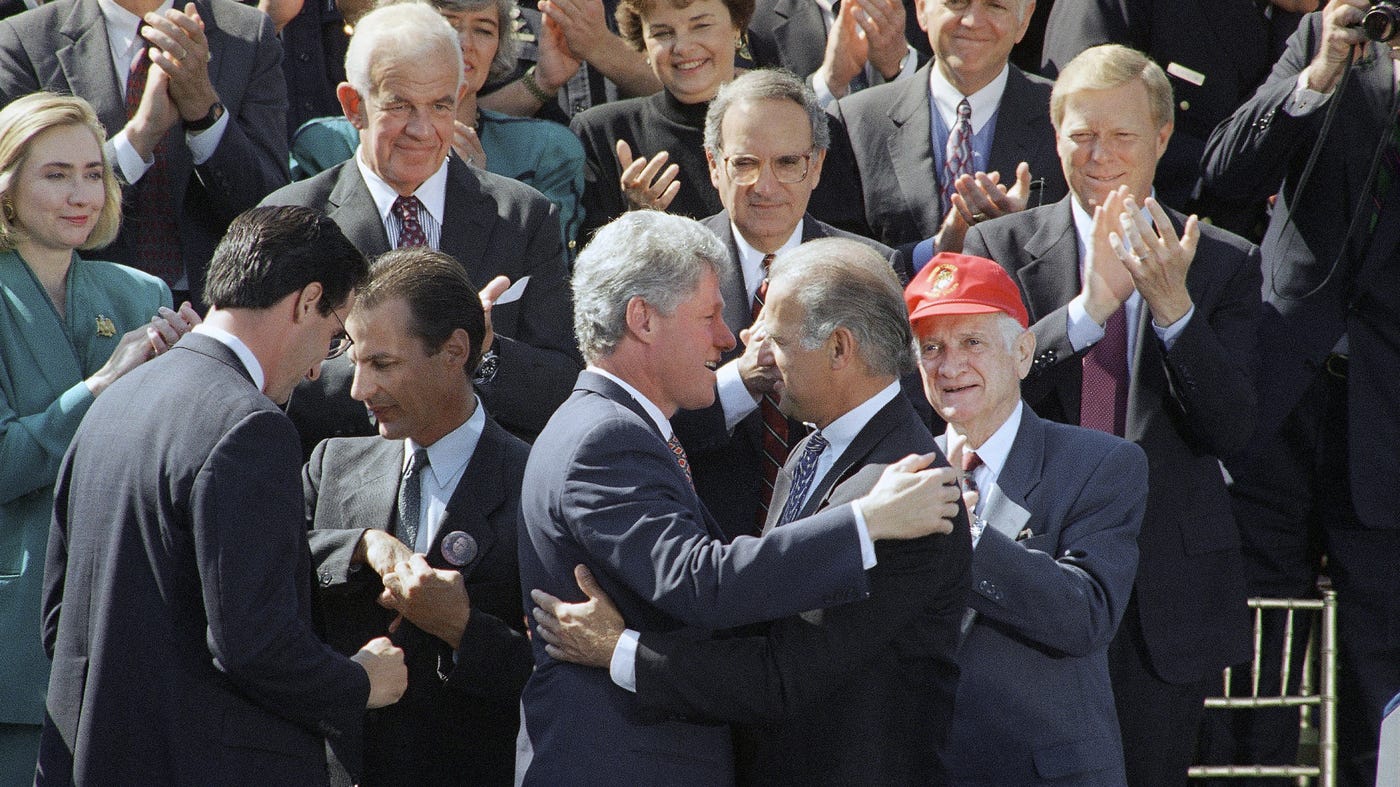
The 1994 Crime Bill:
The 1994 crime bill, formally known as the Violent Crime Control and Law Enforcement Act, has been a point of contention in discussions about systemic racism and its impact on the Black community. RFK Jr.’s tweet suggests that this legislation, which Joe Biden played a key role in authoring, contributed significantly to the mass incarceration of Black Americans. The bill included the “three strikes” rule and other stringent measures that led to increased prison sentences for many offenders. Critics argue that these policies disproportionately affected Black individuals, exacerbating racial disparities within the criminal justice system. The conversation around this bill remains a critical part of the broader dialogue on reforming criminal justice to address its impact on minority communities.
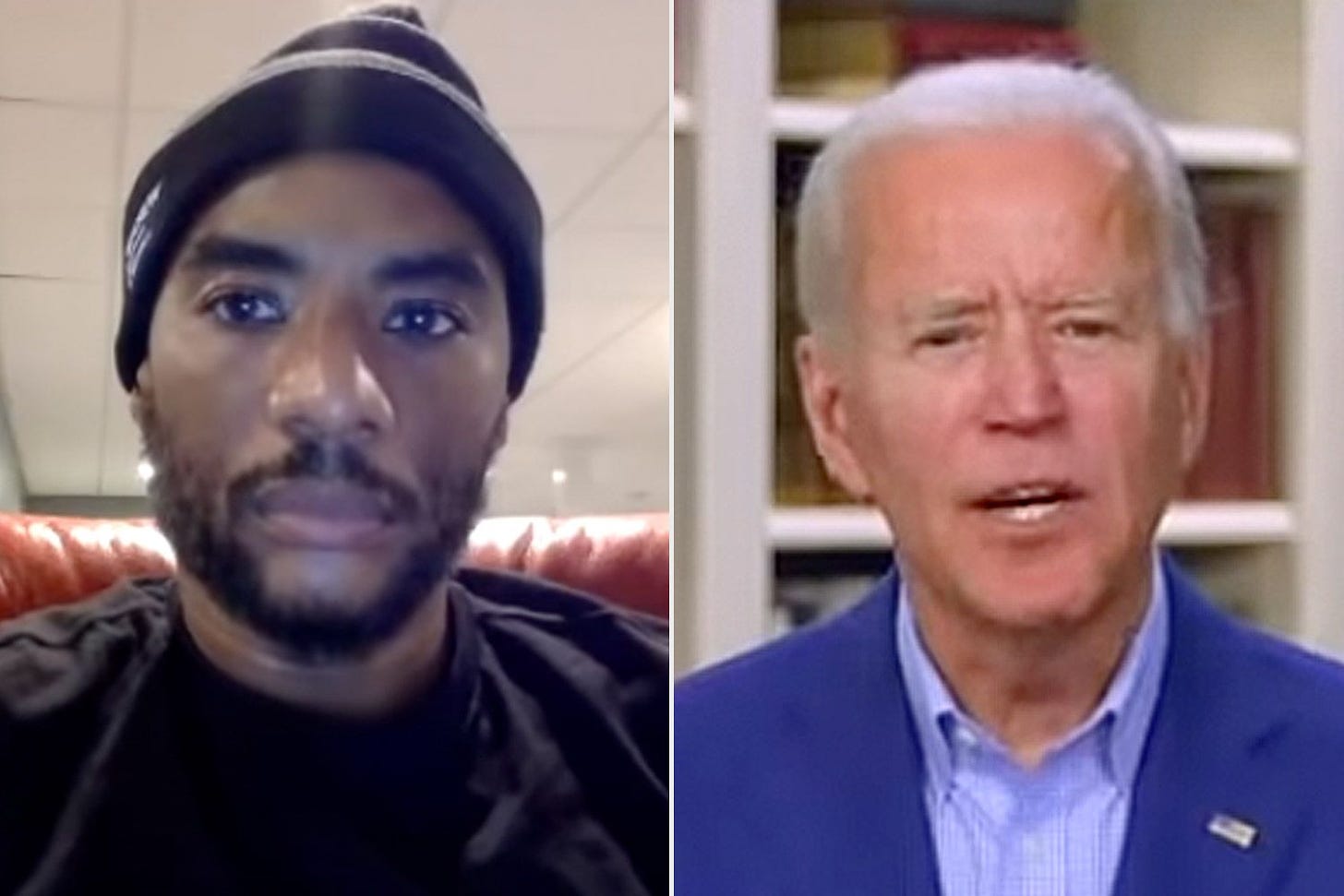
You Ain’t Black:
Joe Biden’s comment during a radio interview in which he stated, “If you have a problem figuring out whether you’re for me or Trump, then you ain’t black,” sparked widespread criticism. RFK Jr.’s mention of this remark in his tweet underscores the controversy it stirred. This statement was perceived by many as a presumptive and dismissive assessment of Black Americans’ political agency, raising concerns about racial insensitivity and the complexities of voter allegiance within the Black community. Biden later apologized for this comment, acknowledging that it was a mistake to take the Black vote for granted.

Weed, Really Joe?
Joe Biden has faced criticism for past legislative actions, such as the extension of penalties for those under 21 charged with selling marijuana. RFK Jr. points to this as a policy that has been scrutinized for its role in the broader issue of criminal justice reform, especially concerning its impact on younger individuals within the Black community. Critics argue that such measures have contributed to long-term legal and social consequences for a generation, affecting their opportunities and exacerbating the cycle of criminalization among youth, particularly in minority populations.
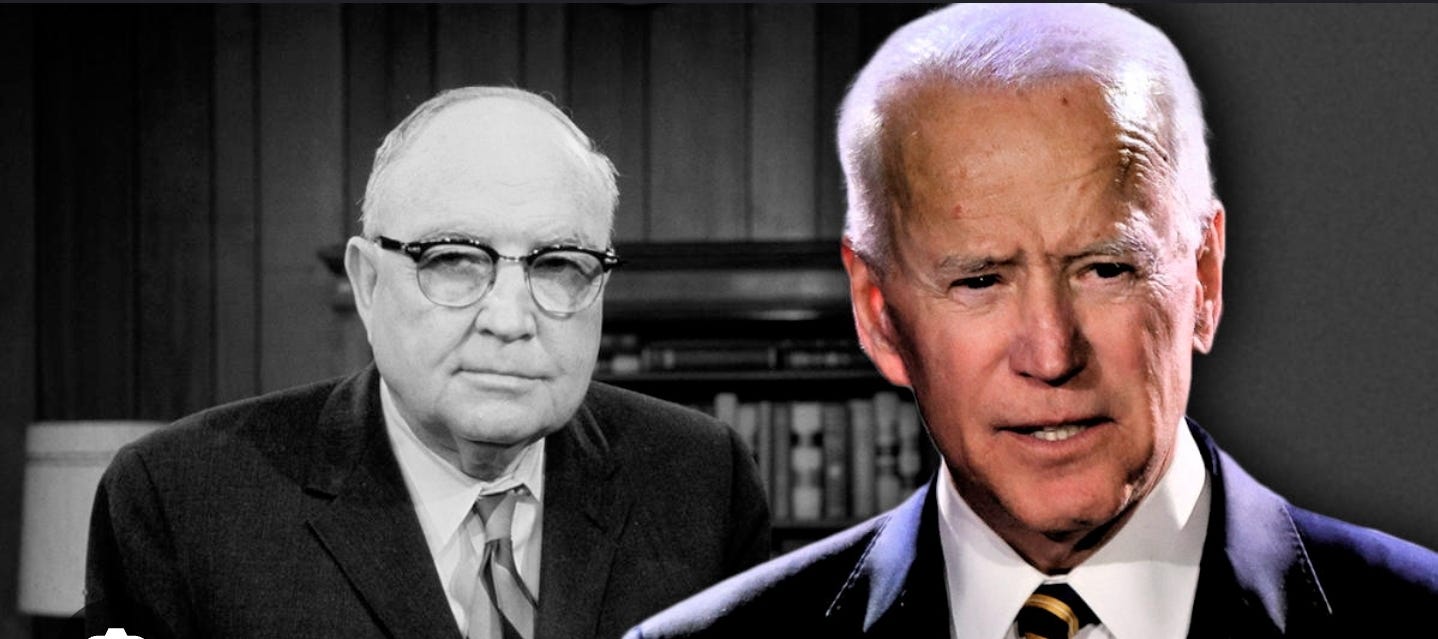
Senators of Segregation:
Joe Biden’s historical political relationships, particularly his past endorsements of segregationist senators, such as Senators James Eastland and Herman Talmadge, have been brought to light by RFK Jr. These endorsements have raised questions about Biden’s commitment to racial justice and equality. The scrutiny of such endorsements is part of a larger conversation about the evolving political views and alliances within American politics, and how these historical associations are viewed through the lens of current societal values.
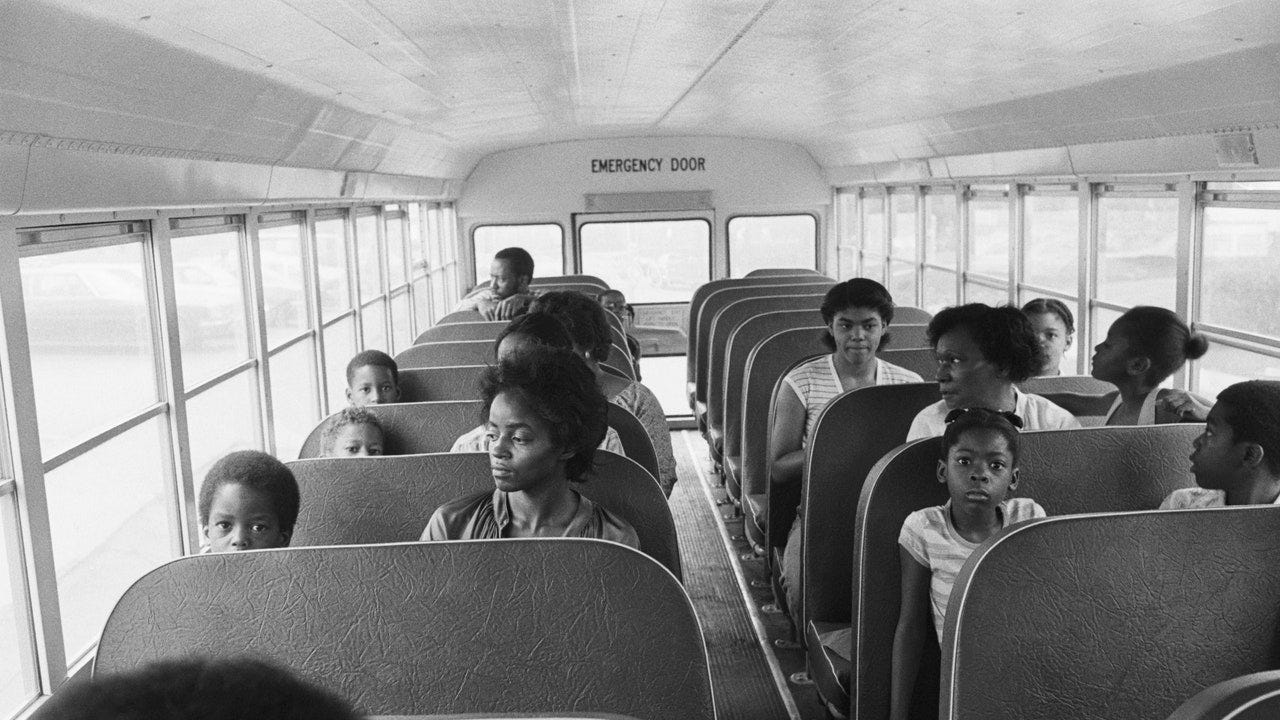
No Bussing Biden:
Joe Biden’s past opposition to busing initiatives, crucial for school desegregation, has come under severe criticism. RFK Jr.’s tweet highlights this stance with a quote where Biden expressed his concern about his children growing up in a “racial jungle,” a term now widely condemned for its insensitive implications. This comment reflects a historical resistance to integration efforts that were designed to dismantle the pervasive segregation of the time. Biden’s position on busing is viewed by many critics as a stark example of resistance to the progress of civil rights and racial equality, illustrating a controversial pattern of racial prejudice during his career.
Conclusion
The revelations put forth by Robert F. Kennedy Jr. regarding Joe Biden’s past have ignited a reexamination of the President’s positions on critical race issues. As the nation reflects on its leaders’ roles in shaping policy and societal norms, this scrutiny underscores the importance of accountability and the evolving understanding of racial justice. The claims made by RFK Jr. challenge us to confront the clear pattern of prejudice in Joe Biden’s political career and to demand continuous progress towards equality, reflecting the imperative for leaders to not only evolve but to actively rectify the repercussions of past actions.
-

 Featured2 days ago
Featured2 days agoElon Musk Drops Unforgettable Take on Who’s Running the Shadow Government
-

 News3 days ago
News3 days agoGreat News: Americans’ Trust in Mass Media Hits All-Time Low
-

 News3 days ago
News3 days agoBUSTED: Meta Insider Reveals How Company Is Quietly Rigging the Election
-
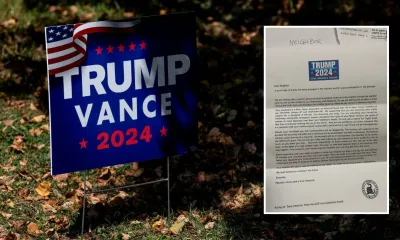
 News1 day ago
News1 day agoALARMING: Trump Supporters in Pennsylvania Targeted with Threatening Letters





